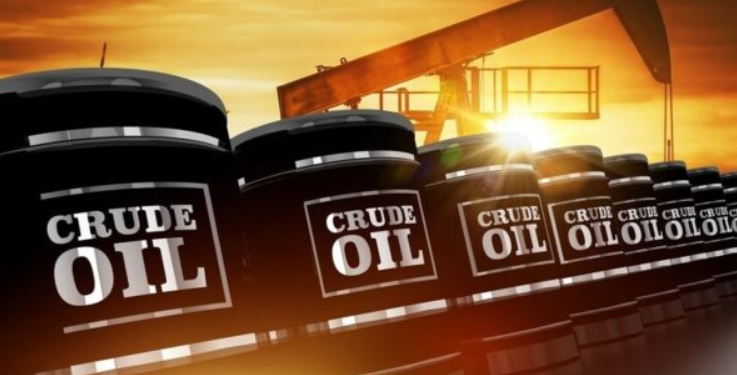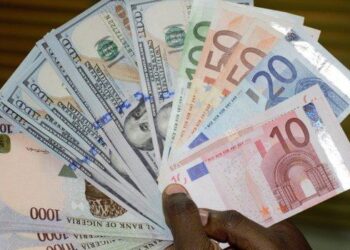The Nigerian naira fluctuated well below N1600/$ on Thursday in the unofficial market, amid higher oil prices and investor concerns about tightening supplies.
The US easing of tariffs and rising tensions in the Middle East helped commodity-linked currencies like the naira, leading to its current stabilization phase.
The naira’s prospects improved as crude oil prices approached the FG benchmark of $75 a barrel.
Nigeria’s FX earnings are mostly from the black viscous hydrocarbon and its derivatives.
Recent market reforms have positively impacted the Nigerian foreign exchange market, as evidenced by the gradual convergence of official and parallel market exchange rates with oil prices approaching the $70 barrel resistance line.
Nigerian crude settled near $70 a barrel on Wednesday, with Bonny light quoted above $69.5 a barrel, supported by increasing geopolitical tensions in the Middle East.
High Tension in the Middle East Supports Oil
The US State Department authorized the withdrawal of non-essential personnel from the embassy in Baghdad because of increased security concerns with stalled nuclear talks with Iran.
While no formal evacuation is underway, plans are being made as Gulf tensions worsen, creating high concerns about energy security in the region and global crude oil supplies.
- New Nigerian July-loading crude oil cargoes were also boosting differentials, which are set to rise. A trader noted that Nigerian crude is being sold for July and is therefore bypassing the discount. Nigerian Bonny Light crude is considered a top crude oil blend due to its low sulfur level.
- President Trump stated that he now believes the chances of the United States reaching an agreement with Iran are low, fueling fears that Iran could develop a nuclear weapon.
“I’m less confident now than I would have been a couple of months ago,” President Trump noted while speaking on a podcast this week.
The President continued, “Something happened to them, but I am much less confident of a deal being made.”. He stated that the US will not permit Iran to enrich uranium to the required level to develop a nuclear weapon, regardless of whether an agreement is reached.
- While the US insisted on stringent restrictions on Iran’s advanced centrifuge operations and regional missile activity, Iran demanded more guarantees on sanctions relief and the unfreezing of overseas assets, which caused talks to stall.
- There have been no diplomatic backchannels as both sides have hardened their stances, which has led to concerns that the window for reviving the 2015 Joint Comprehensive Plan of Action (JCPOA) may be closing.
- The likelihood of a military conflict in the area has significantly increased because of this impasse.
- High volatility in the oil market is often triggered by geopolitical instability in the Middle East, especially because shipping lanes like the Strait of Hormuz, which handle about 20% of the world’s oil flows, are vulnerable.
Oil dealers prepare for possible supply chain disruptions as the Iranian government issues fresh threats against US installations.
Iraq’s crude exports, with 4 million barrels per day, or about 5% of global production, are vulnerable if the conflict intensifies. Iraq’s economic stability depends on Kurdish energy revenues and larger upstream investment, both of which could be negatively impacted by any major disruption in addition to physical flows.
Nigerian Government waters down $5 billion Aramco Loan
Meanwhile, the Nigerian federal government stated no final decision has been made on an oil-backed loan between Nigeria and Aramco, Saudi Arabia’s state-owned oil company. Nigeria and Aramco are reportedly in a stalemate over a $5 billion oil-backed loan following the recent decline in crude prices, which has alarmed the banks that were supposed to back the deal.
Mohammed Manga, a director at the Ministry of Finance, highlighted was no basis for assertions that such initiatives will fail. According to Manga, market speculation frequently occurs during times of economic reform and transaction.



















